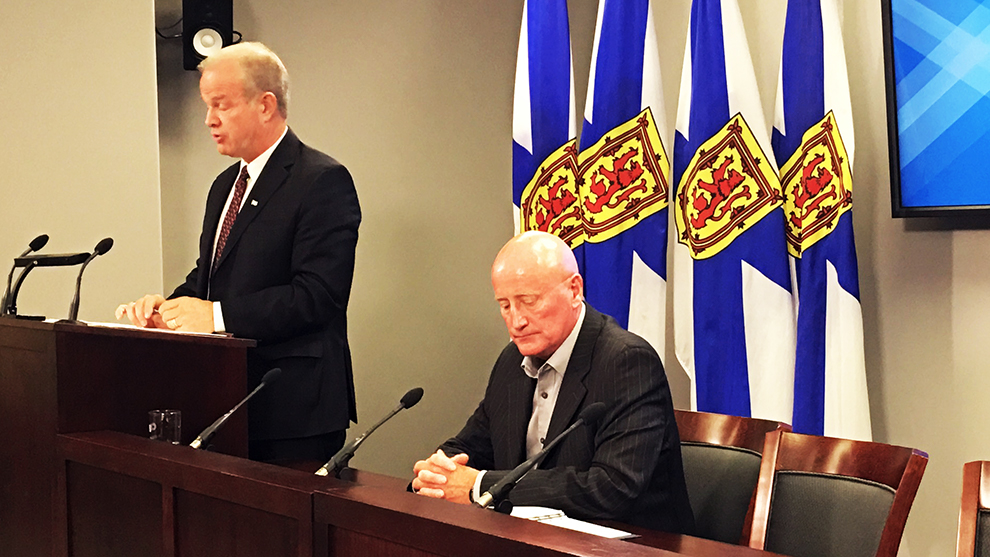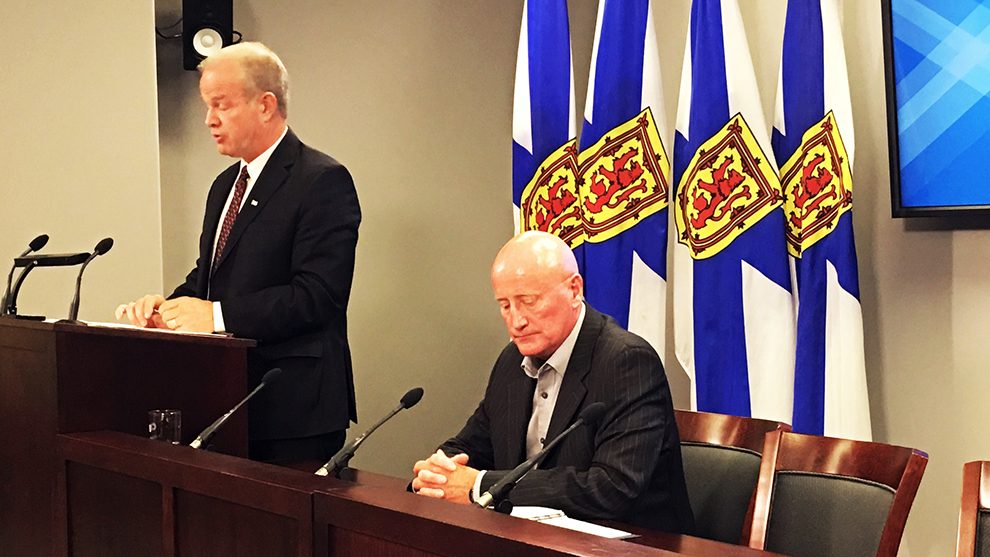Labour
NSGEU ‘very pleased’ with two year addition of wage increases
Labour minister says province accepts board's decision

caption
Minister of labour relations Mark Furey (left) and government negotiator Rollie King (right) announced a decision Thursday that wages will increase for NSGEU workers.
caption
Labour Minister Mark Furey (left) and government negotiator Rollie King (right) respond Thursday to the board’s decision.The Nova Scotia Government & General Employees Union say it’s pleased with an arbitration board’s decision to increase wages for workers over a six-year master agreement.
The ruling breaks the province’s wage restraint limitation suggested by Bill 148 by adding two years to the plan, for a total wage increase of seven per cent by 2021.
The NSGEU, which represents thousands of government workers in the province, released a statement Thursday saying they are supportive of the binding result made by the Civil Service Arbitration Board.
The arbitration board met Tuesday and Wednesday to decide on terms and conditions for the collective agreement between the NSGEU and the government. The previous agreement expired in 2015.
“The NSGEU is very pleased the Board chose to agree with the Union’s proposal to extend the contract by two years and offer wage increases beyond those outlined in the province’s wage restraint legislation,” the union said in the statement.
Mark Furey, minister of labour relations, also released a statement saying the decision is “fair and affordable.”
At a news conference Thursday morning, Furey said the first four years will reflect a previously considered wage pattern for the plan.
“The board felt necessary to extend a fifth and sixth year, and what they did is they replicated the wage pattern from Year 4,” he said.
This pattern will include a 1.5 per cent increase of wages in the fifth year of the plan, and a 0.5 per cent in the sixth year
The government negotiator for the plan, Rollie King, said at the news conference a payout of service awards is another key element in the decision. He said employees will have a one-time option, before the end of this fiscal year, to elect for an immediate payout of their service award accrued to March 31, 2015. If they don’t take the opportunity, workers will see their award paid out upon retirement.
When asked about the costs for the plan and whether it is affordable for the government, King said specific numbers are yet to be determined.
“The one per cent specific to this group equates to about 5.1 million, that’s a generalization,” he said. “We believe these costs are within our ability to pay.”
The agreement will run through to March 31, 2021.
With files from Colin Slark

